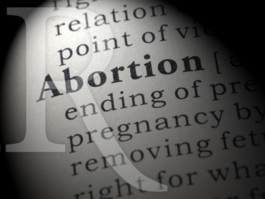The Divided Era & the 2012 Election
A Commentary By Thomas Del Beccaro
We live in the Divided Era of American politics. Nearly equal numbers of people are now on the side of almost every political issue. This phenomenon of partisanship is neither accidental nor temporary. Throughout all of history, the larger the stakes the more divided a people and the larger the government, the larger the stakes. This year, the presidential election is taking America to new partisan heights.
In general, partisan intensity is directly proportional to the number and size of the political prizes we seek. So in the wake of a revolution with so much at stake between the sovereign states and those who wanted a “more perfect union,” partisanship was so intense that history would remember the protagonists as Federalists and their partisan opposites: Anti-Federalists. It is hard to imagine a more diametric battle. It featured political diatribes that make our modern discourse diplomatic by comparison. Of course, 70 years later, our partisan stakes reached their highest peak in American history with the Civil War - when our ways of life were decided not by the ballot but with guns.
Those and certain other exceptions aside, our differences over the last two centuries have tended to be minimal compared to today. Government at every level was but a drop in the bucket compared to today’s ocean of spending and regulations. Not long after we settled upon or various limited government constitutions, we fought each other less and were therefore less divided because government did less.
We taxed each other less and redistributed almost not at all. As such, we initially avoided one of the great rivalries of history - between the haves and those for whom government becomes a vehicle to have more. Government also told us far less what to do: There were so very few laws and even less regulation. That, too, meant that the average and the elite found fewer grounds for fighting.
The rather early lack of government-centric competition between us left our castles nearly unassailed and fostered the Era of Good Feelings, a period which allowed our fifth President, James Monroe, to run for reelection unopposed. An unopposed school board race is rare today. An unopposed presidential election is unimaginable.
Not coincidentally, we have allowed our government to grow to such an extent that nearly every aspect of our life is either regulated or taxed or threatened with one or the other. On each side of those equations is a willing adversary seeking benefits or attempting to deprive others of theirs. In the middle are ambitious politicians amplifying if not promoting the competition for their own power or graft.
So we find city councils everywhere deciding the scope of your property rights including the size of our former castles. At the other end of the spectrum, the federal government restricts and regulates the mattress on which we sleep, the food we eat, the cars we buy, the fuel we use to get to work, the rules that apply at our work, the TV we watch after work and the light we turn off at night - not to mention the manner in which our children are taught. In between are state governments rushing to fill the vacuum of virtually every freedom we leave unattended.
Each such regulation or tax is to someone’s detriment and another’s profit. We take that competition to new heights in our tax code, which long ago abandoned its principal purpose, i.e. to raise money, in favor of political favoritism.
Today, our national sport may well be businesses fighting each other for tax breaks or monopolistic protections. Consumers sanctimoniously seek relief from the protection those businesses purchase and then turn around and seek more regulation against their neighbors and the very businesses that they claim charge them too much.
In simple terms, for everything government does it pits people and/or businesses against each other for ever more benefits or protections, and the more government taxes, regulates, licenses or spends, the more fighting there is. Given that overall state and federal government spending and debt is in the tens of trillions, we should understand the height of our problem and the length to which this partisanship will extend.
The 2012 election highlights our partisanship. Despite two years of non-stop campaigning, our candidates have fought to a draw. Even our vice presidential candidates garner an equal 44% in a recent Rasmussen poll. Not coincidentally, nearly half of Americans pay no federal income taxes, and most of those who do are crying foul over government spending.
Of course, we are not alone in this tired play of history. From historian Will Durant we read: "Isocrates, old and rich, complained in 353 B.C., 'When I was a boy, wealth was regarded as a thing so secure and admirable that almost everyone affected to own more property than he possessed . . . now a man has to be ready to defend himself against being rich as if it were the worst of crimes.' " You see, what is new is really rather old.
So while we can ask if the current presidential draw is a function of the candidates involved or a lack of better candidates, it would be more fruitful to understand that the source of our problems is the game we ask them to play.
Thomas Del Beccaro is the chairman of the California Republican Party.
See Other Political Commentary
Views expressed in this column are those of the author, not those of Rasmussen Reports. Comments about this content should be directed to the author or syndicate.
Rasmussen Reports is a media company specializing in the collection, publication and distribution of public opinion information.
We conduct public opinion polls on a variety of topics to inform our audience on events in the news and other topics of interest. To ensure editorial control and independence, we pay for the polls ourselves and generate revenue through the sale of subscriptions, sponsorships, and advertising. Nightly polling on politics, business and lifestyle topics provides the content to update the Rasmussen Reports web site many times each day. If it's in the news, it's in our polls. Additionally, the data drives a daily update newsletter and various media outlets across the country.
Some information, including the Rasmussen Reports daily Presidential Tracking Poll and commentaries are available for free to the general public. Subscriptions are available for $4.95 a month or 34.95 a year that provide subscribers with exclusive access to more than 20 stories per week on upcoming elections, consumer confidence, and issues that affect us all. For those who are really into the numbers, Platinum Members can review demographic crosstabs and a full history of our data.
To learn more about our methodology, click here.



